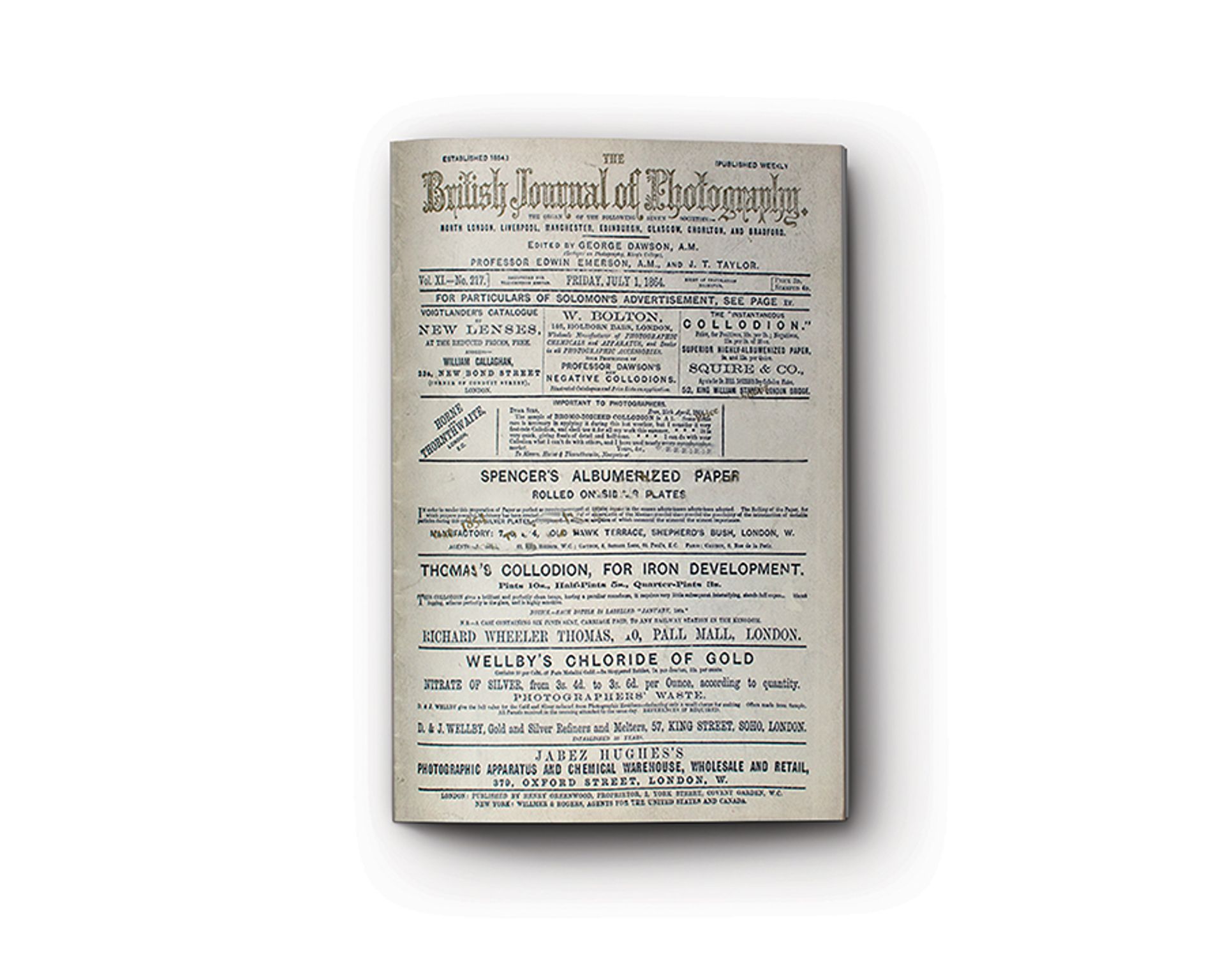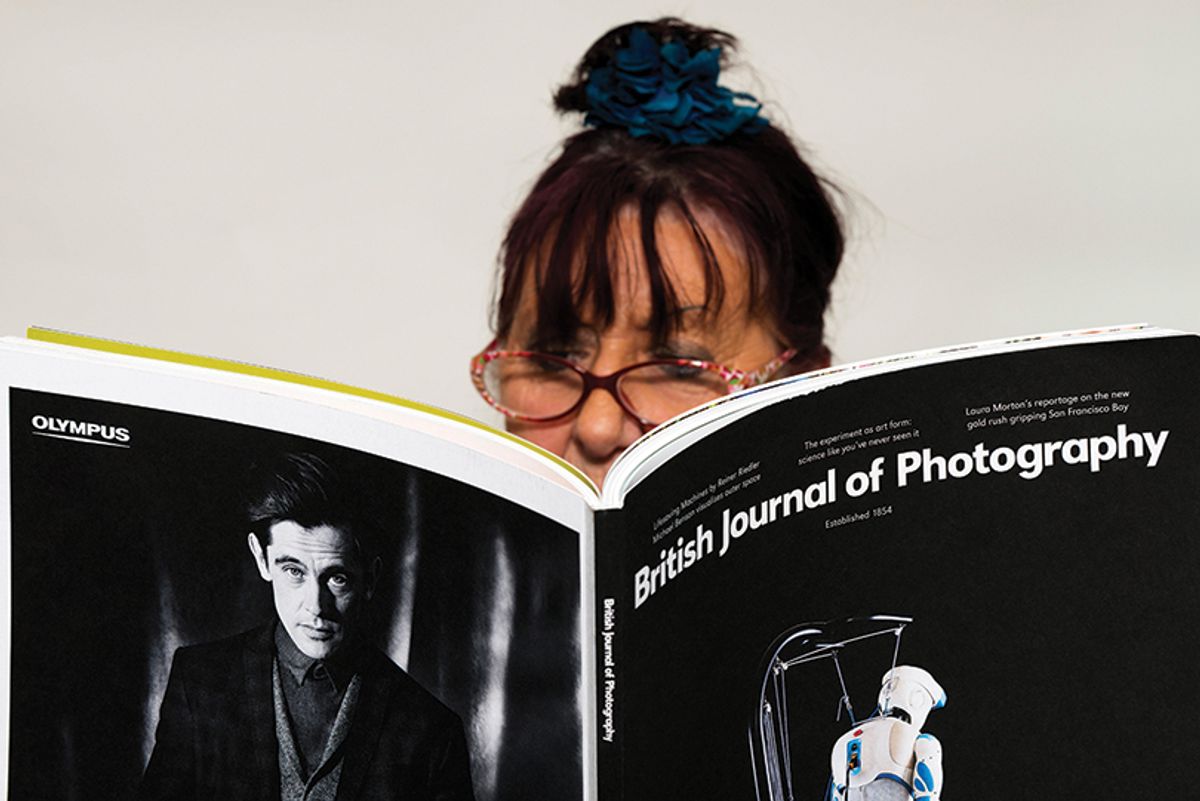The British Journal of Photography, one of the oldest magazines in British history and one of the leading print authorities in contemporary photography, has been saved from folding after a new owner came forward to buy the magazine’s publisher, but at a tiny fraction of its publicly claimed value of more than £6m.
Stephen Rodger Henly, the chief executive of Shrewsbury-based Acota, a speciality chemicals business, now owns the historic magazine, known as BJP, and its publisher, 1854 Media. Henly is a former board member who already owned a minor stake.
“We were in a really precarious situation,” says Mick Moore, the newly installed chief executive of 1854 Media and BJP’s creative director of more than 25 years. “I thought we might not see another print copy of BJP. We wanted to keep the brand alive. That was our focus.”
“Henly found a company with no monetary value,” says a senior source aware of the deal. “The balance sheet was technically insolvent.”
On 8 February, the magazine announced Henly as the new owner hours after sending a message to the company’s 945 shareholders, some of whom invested in 1854 Media via equity crowdfunding. The company’s “cash distribution to shareholders” was worth just £50,000, they were told.

BJP is one of the UK’s oldest magazines and a leading print authority on contemporary photography Clynt Garnham Publishing/Alamy Stock Photo
“The £50,000 shareholders can now collectively receive is a net amount,” Henly tells The Art Newspaper. “It was offset by me having to put the company’s balance sheet right.”
The news has been met with dismay by many voices in the UK photography community. Juan Peces, the respected Spanish photography critic and a long-term correspondent for the magazine, described the events as “a horrorshow for a much-respected publication”.
The company asked for new shareholders to give money to 1854 Media in return for shares over three separate equity crowdfunding pushes, in June 2016, May 2018 and December 2019, during which the company raised a combined investment of more than £1.6m, according to publicly available records, with more than £500,000 coming from small investments. In the most recent round of equity crowdfunding, the company stated its pre-investment value was £6.6m.
Of 945 shareholders, 70 voting shareholders hold 93% of the company’s shares. All shareholders to invest in the company now face a more than 90% loss on the money they put in.
Moore says BJP would have closed without the drastic actions, but still expresses regret. “I wanted to let people know what was going on,” he says. “I recognise the pain it’s caused our audience. While the ownership was changing, it wouldn’t have been appropriate for me to comment. But this is real money affecting real people; I understand that.”
Poor communication
Speaking to The Art Newspaper, Marc Hartog, 1854 Media’s outgoing chief executive, apologises to the non-voting shareholders who have seen their investments diminish. “Communication should have been better,” Hartog says. “We should have provided non-voting shareholders with a timelier context, and I do sincerely apologise for that failing.”
But Hartog also hits back at critics who claim that 1854 Media left shareholders in the dark about the sale or misled potential investors about the company’s finances. “The proposed restructure of the business and sale of 1854 Media was undertaken in full communication with, and with the approval of, incoming senior management, the board of directors and voting shareholders,” he says.
Between June and August of last year, 1854 Media’s management also sought “bridge financing” whereby they offered more investment to certain existing investors.
In a letter to shareholders in July 2021, Hartog said the company was “on track to profitability in 2022”. It also stated: “Our team, fundamentals and products have never been stronger, despite Covid.”
In further communications, Hartog told investors that internal modelling—“based solely on recurring revenue”—projected that shareholders could potentially receive six times the value of their investment within four years.
Responding to the claim he was hiding the true nature of the company’s finances, Hartog says: “The team worked tirelessly to navigate this extraordinarily challenging time, and, by the middle of last year, we were optimistic about 1854 Media’s chances of surviving the pandemic and thriving beyond.” Sources confirm Hartog had the support of major shareholders throughout the pandemic.
But a senior source familiar with the company’s finances contradicts Hartog’s version of events, saying: “The management knew the business was months or weeks away from running out of money completely, long before last autumn.”
In January this year, Hartog bought himself out of 1854 Media to fully launch a new independent business, ART3.io, a digital start-up focusing on trading contemporary photography in the metaverse. Hartog notes the divestment came with an 80% shareholder approval.
Hartog originally bought BJP from the publishing house Incisive Media in March 2013. The magazine dates back as far as 1854 and was originally used as a place for experimental darkroom enthusiasts to share recipes for chemical darkrooms. For much of Incisive Media’s ownership, BJP was a thin and glossy pamphlet that provided camera reviews for amateur photographers and showed little interest in exploring how contemporary photography was becoming a serious art form in its own right.
After Hartog’s buy-out, and under the direction of Moore and Simon Bainbridge, the magazine’s former editor, BJP became a premium monthly art magazine that was internationally regarded as a progressive and uncompromising champion of photographic artists. Bainbridge, who guided the magazine’s editorial for more than 20 years, left in August 2020, citing “creative differences”.
Moore says the BJP’s strategy from here is “a momentous return to our heritage”. He says: “We’re not out of the woods yet, but we’re going to secure the magazine. And we are going to bring it back to what it should be.”


